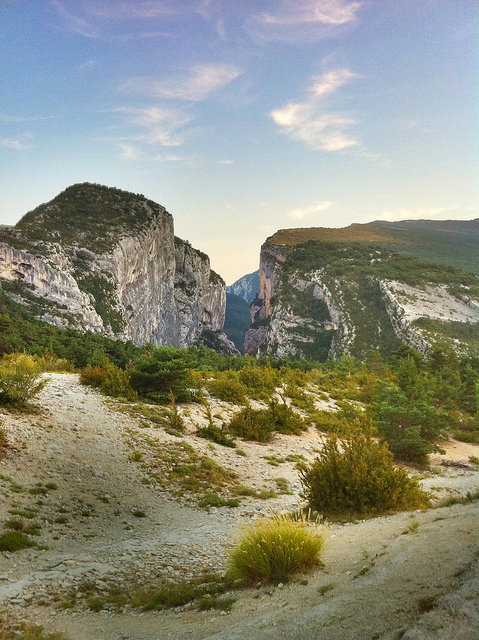Monthly Archives: August 2011
Tortured logic on torture
Came on this — UK’s secret policy on torture revealed in yesterday’s Guardian.
A top-secret document revealing how MI6 and MI5 officers were allowed to extract information from prisoners being illegally tortured overseas has been seen by the Guardian.
The interrogation policy – details of which are believed to be too sensitive to be publicly released at the government inquiry into the UK’s role in torture and rendition – instructed senior intelligence officers to weigh the importance of the information being sought against the amount of pain they expected a prisoner to suffer. It was operated by the British government for almost a decade.
A copy of the secret policy showed senior intelligence officers and ministers feared the British public could be at greater risk of a terrorist attack if Islamists became aware of its existence.
One section states: “If the possibility exists that information will be or has been obtained through the mistreatment of detainees, the negative consequences may include any potential adverse effects on national security if the fact of the agency seeking or accepting information in those circumstances were to be publicly revealed.
For instance, it is possible that in some circumstances such a revelation could result in further radicalisation, leading to an increase in the threat from terrorism.”
Now let me see if I’ve understood this correctly. My reading of it is:
1. Torture is illegal in Britain, but civil servants are allowed to make use of information derived from torture by balancing the ‘value’ of the information obtained against the amount of pain inflicted to extract it.
2. So any MI5 or MI6 officer who knowingly receives information obtained by torture is breaking the law, in much the same way that someone who knowingly receives stolen goods is breaking the law.
3. If the great British public were to learn that this was going on, then it would endanger national security because the news that British public officials were passively (but illegally) condoning torture would enrage muslims and cause some of them to be radicalised.
4. So the thing to do is to continue condoning torture but to make sure that nobody knows we’re doing it.
And this is a democracy?
Evening on the Gorge
Yesterday evening, we drove round the Northern side of the Gorge de Verdon — which over-enthusiastic guidebooks sometimes call “Europe’s answer to the Grand Canyon”. It’s not that, but it is still magnificent, awe-inspiring and ravishingly beautiful in places. About half-way through, we stopped for a break and thought of taking some panoramic shots. But by that stage we were heading for dusk, with distant peaks catching the rays of the setting sun and the foreground in shadow. I tried some conventional pics, with the usual problems. So switched on the HDR App on my iPhone, with this result. It leads me to wonder why proper digital cameras don’t now have in-camera HDR built in. The answer, probably, is that they don’t have processors that can handle it. Whereas the iPhone is really a general-purpose Unix box which can turn its hand to anything (er, provided Apple approves, of course).
Another HDR shot from further on in the drive, looking back on where we’d come from.
The Libyan fiasco
One of the things that constantly amazes me is the way in which governments and large companies can do unbelievably stupid things. How do huge bureaucracies staffed by intelligent people come to believe utter nonsense? The Libyan adventure on which Cameron and Sarkozy embarked so cavalierly is a good example — as Simon Jenkins points out in a really good Guardian column.
With the humanitarian juices running strong, and America a suddenly timid policeman, London was tempted with a precious moment of glory. The inner cabal of Cameron, George Osborne and Michael Gove reportedly saw Libya as a neoconservative epiphany. It would be like Thatcher's Falklands task force, a moment when politics aspires to statecraft and puts on the armour of crusade. The Downing Street sofa went electric.
These were men who had never gone to war and never known what war requires of government. Sound advice is drowned by a tide of patriotism. Wisdom is derided as weakness. I doubt if any of those who got Britain into this mess had the foggiest idea how they would get out of it, with Gaddafi dead or alive. Yet ahead they charged. They now have ears only for reports of imminent victory from the front, and from an intelligence service whose susceptibility to political pressure has been revealed by the Chilcot inquiry.
The serious question is why in all this did the normal checks and balances fail to operate. Where were the soldiers, diplomats and civil servants who knew Libya well, who knew about military intervention and the likely outcome of specific operations? Where was the scepticism due to any project so implausible as a "no-fly zone to impede the advance of government forces", when this did not embrace ground action (other by bombing) or a legal entitlement to remove a foreign regime? Where were the law officers or the crown? Where was the adviser to say to Cameron, you may want to do this but it must be all or nothing?
When the army wanted no part of the operation, Cameron should have smelled a rat. By assigning Libya to airmen and sailors, Cameron put in the driving seat the two services without an ounce of strategic sense.
It’s clear that there is no rational strategy behind what the governments of Britain and France are now doing. It’s all based on fantasies that the raggle-taggle crew of anti-Gaddafi forces constitute some kind of potential democratic government. That’s not to say that Gaddafi and his crowd aren’t monsters. But if you decide to take on monsters then you need to have a game plan which leads to their extinction.
LATER: Everything I said about government adherence to unworkable ideas also applies to the Eurozone project.



